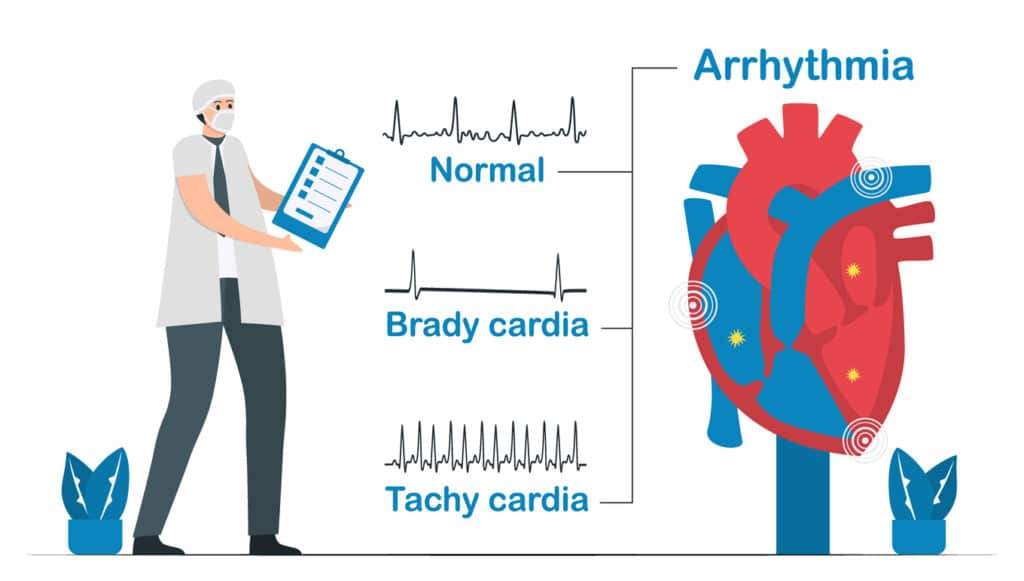

Sick Sinus Syndrome (Sinus Bradycardia, Sinus Pauses, Chronotropic Incompetence), Atrioventricular (AV) Block, Neurocardiogenic or Vasovagal Bradycardia (or syncope)
You have a slow heart rate of less than 60 beats per minute. This is caused by slowed electrical conduction through the heart.

There are different types of electrical conduction problems that cause bradycardia. The SA node is the natural pacemaker of the heart. In a healthy heart, the SA node generates the electrical signal that spreads through the rest of the heart. When the SA node is not working right, it is called sick sinus syndrome. The Atrioventricular (AV) Node acts as the electrical bridge between the top and bottom chambers of the heart. When the AV node is not working right, it is called AV Block. In more rare situations, people can have problems with bradycardia and fainting that have a healthy cardiac conduction system, but rather, the nervous system signals the heart to go too slow. This is called neurocardiogenic or vasovagal bradycardia.
Sometimes people do not feel bradycardia, or they get so used to how they feel when they are bradycardic that they do not recognize the symptoms.
Signs and symptoms of bradycardia include:
If your heart rate is more than 50 bpm and you have no symptoms, you should just mention it at your next appointment.
Sometimes your provider can fix the problem by adjusting medications that slow the heartbeat. Otherwise, bradycardia is treated with a pacemaker . In the case of neurocardiogenic/vasovagal bradycardia, cardioneural ablation can treat the problem.